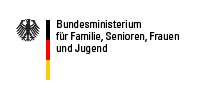AID:A I - Growing up in Germany

This long-term scientific study collects data on how children and young people grow up as well as the general living conditions of families in Germany. It is carried out at regular intervals by the German Youth Institute on behalf of the Federal Ministry for Family Affairs, Senior Citizens, Women and Youth.
In terms of content, the focus is on constellations that characterise and influence the individual life course. In addition to the personal influences - such as life situation, personal competences and abilities, values, subjective interpretations and future visions of the individual as well as the concrete actions and activities of the individual - the changing social framework conditions that individuals have to cope with today are also taken into account. Individuals are always part of social contexts: They act in family contexts and have a wide variety of intergenerational relationships with their fellow human beings. These shape the course of life, individual lifestyles and life planning as well as individual characteristics.
The special feature of the DJI approach is that the respondents are not viewed and analysed as isolated individuals, but as members of comprehensive social networks in the context of specific biographies. For example, the concept of the family as a network means that the family is not defined solely as a form of residence or household, but that the lived relationships are placed at the centre of the analysis and thus, for example, multi-local families are also included. The individual circumstances are then placed in relation to the institutional contexts that an individual goes through in their development (day care centre, school, training, etc.) and provide them with support (state aid).
The DJI survey Growing up in Germany (short: AID:A) collects data on how children and young people grow up as well as living conditions of adults and families in Germany. It is conducted at regular intervals by the German Youth Institute on behalf of the Federal Ministry for Family Affairs, Senior Citizens, Women and Youth (BMFSFJ).
The aim of the study is to describe factors and constellations that shape and influence the life course of individuals. In addition to personal influences - such as individual skills and abilities, values, subjective interpretations and ideas about the future of the individual as well as specific activities - the changing social conditions that individuals have to cope with today are also taken into account. In addition, individuals are always integrated into social contexts: They act in family contexts and are in different generational relationships. These social factors shape the life course, individual lifestyles and life planning just as much as individual characteristics.
Accordingly, the interviewees in the study are not viewed and analyzed as isolated individuals, but as members of comprehensive social networks in the context of specific biographies. For example, the concept of the family as a network means that the family is not defined solely as a form of residence or household, but that the lived relationships are placed at the center of the analysis.
The increased need for empirical data for modern policy advice and scientific research as well as the necessary realism of the underlying data led to a repositioning of empirical life situation research at the DJI in coordination with the responsible Federal Ministry.
Growing up in Germany with childhood, youth and family as integrated components of a life course between privacy and institutional support or embedding cannot be captured in individual sub-topics, detached from the various contexts such as age, social change, regional characteristics.
For this reason, the previous life course surveys of the German Youth Institute (Family Survey, Youth Survey, Child Panel and Childcare Study) were integrated and merged into an integrated survey research programme.
The aim of the study Growing up in Germany is to gain a better understanding of the current situation of families with children in Germany and to show what problems families are confronted with today, how childcare is managed in families and how families manage to harmonise work, household and leisure time.
Survey and panel research at the DJI sees itself as an important and integrative component of childhood, youth and family research. It ties in with current discussions in politics, research and professional practice, such as a sustainable youth and family policy focussing on intergenerational relationships, the desire to have children, multi-child families, childcare and the balance between family and the world of work. It also addresses the issue of public responsibility for growing up.
The concept aims to develop an integrated survey concept that covers the topics of childhood, youth and family. In this context, a representative main survey will be carried out that contains several modules:
- A core module (standard repertoire of variables that are regularly used to describe life situations, ways of life, selected competences and patterns of action),
- special modules (with additional questions for special populations, e.g. life situation childhood, life situation youth, life situation adults),
- political current questions,
- additional surveys (with increased special populations, possibly on specific issues and politically topical issues).
In addition to the existing content, coping strategies are to be emphasised to a greater extent than in the previous life situation surveys - for example on the questions: In which social contexts do people develop which skills and how do they use these skills? Which life situations favour and which life situations make it more difficult to cope with typical everyday situations and biographical decisions? To what extent do socio-structural conditions and resources tied to individuals - possibly supported by state benefit and assistance systems - open up or close off opportunities to realise their own life plans?


